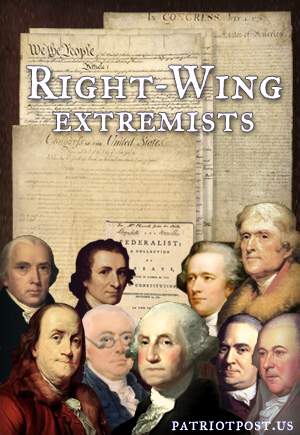Jus Soli vs Jus Sanguinis -two types of citizenship
A “natural born subject” is not equivalent to a “natural born citizen”. Why? Because of Royalty. A natural subject of the King was anyone born within his domain if they weren’t born to foreign representatives or to the women of foreign invaders, or mere foreign visitors who went into labor before returning across the sea to their homeland.
The right of the King to view all persons born within his controlled realm as his subjects was based on the principle of the Divine Right Of Kings. That philosophy viewed the King’s authority as being divinely ordained, and his royal rights viewed to be supreme over all.
Kings were only constrained by the moral laws of the Church and the restrictions imposed by the nobility class which was enraged at the ego-maniacal excesses of monarchs who were corrupted absolutely by absolute power.
In the newly formed United States, there was the principle of individual freedom and the right of self-governance, which replaced the Divine Right of Kings. As a result, there was no equivalent in U.S. governance, -no Divine Right of Presidents, no Royal Sovereign Government. So subjects of kings were not the equivalent of citizens of a free democratic republic. Such citizens were not property of the government, they did not belong to the government, rather, the government belonged to them and they were sovereign over it! Just the opposite of the Monarch’s view of his subjects.
Just as free subjects of Britain were born into the same class as their parents, inheriting national membership by descent from a British father, so it became the common law principle in the United States. Prior to that point, colonial subjects were like the peasant class in Britain which was bound to the land that they “rented” from the Lord of the Manor estate.
They were the debtor class and were not privileged with the same freedom as the un-indebted classes of subjects, i.e., nobility and commoners. Their birthright membership as British subjects was fomally recognized and codified by the 1772 British Nationality Act, whose preamble defined a British subject as one born, no matter if within or outside the King’s dominion, to a British subject father. Our founding fathers didn’t feel the need to ever codify that principle in the Constitution nor Congressional law because to them it was commonly known without contention that it was so. Why codify the obvious? But they could not have foreseen massive waves of illegal immigration across a souther border which did not yet exist.
The colonists were viewed by the British aristocracy as property of the realm by jus soli, since they were born on the property of the monarch, just as children of the peasants were property of the soil on which they were born because they inherited the debt of their parents, a debt that could take a lifetime to escape from, if ever.
So, when one talks about common law one must distinguish between that which applied to the peasant/ colonial class of subjects, or the common law that applied to freemen of Britain who enjoyed the rights secured for them over the centuries at the expense of the unlimited rights of the Crown.
Jus Soli was not a principle that applied in common law to the freeman class but only to the indebted class and its children. They were illiterate third-class members of the realm, living and dying in the area where they were born unless they could join the military or run away and escape as mariners. But children of immigrants to England were deemed to to be jus soli subjects of the Kingdom by the principle that they were born on the King’s land, so their father’s foreign subjection was inapplicable to them.
Jus sanguinis inheritance of the father’s social/ nationality status was the principle that applied by natural law to the nobility and the common man. Their standing was determined by who their father was and they didn’t inherit a lower nor a higher social/ political position than he had achieved unless he fell into the debtor class and was bereft of benefactors to help him solve his debt problems.
Colonial common law was generally the same as British common law except on that one subject of what one’s status was at birth. Was it determined by the principle that all born within a realm are tied to that realm/ property and bound to it for life, (with a slight transmutation from being subject serfs to being free citizens) or was one a citizen because one inherited the same status/ station/ identity/ nature/ citizenship as one’s American father? Was one the son of a freeman or the son of a bonded servant, serf, or worse, a slave?
Those are the questions that have never entered the minds of those who throughout our history have assumed that the colonial jus soli model was a reasonable national and universal model of citizenship, without knowing its dark and oppressive origin, -an origin that believed in human ownership and the Divine Right of Kings to hold absolute power over all within their realm, including all children born within their dominion.
So after having one’s understanding reformed, one comes to the realization that they are not a United States citizen because they were born somewhere within our man-made U.S. borders
but because they were born to U.S. citizens and inherited their citizenship from them as their birthright membership in the nation, -just as leopards inherit their spots from their parents, -just as races inherit their characteristics from their parents. So also, natural citizenship comes by inheriting one’s national membership from members of the national group.
If the parents aren’t natural members, then neither are their children, and they must be granted membership by the rules of the group. They must be natural-ized so that they fit in and can freely join in.
But they were not born as natural members, and can only became members by permission, not by parentage.
But no member who is a member by permission is ever allowed to one day become Chief. That is reserved for security reasons to only those who were born as members via birth to members.
Their membership is via blood connection, -not via a connection to the soil and the borders that it lies within.
They are citizens by nature, and as natural members they are qualified to serve as Chief.
by a.r. nash 2012 obama–nation.com














Pingback: ~Greetings. This is obama–nation.com -providing insights into Presidential eligibility and verification~ « h2ooflife